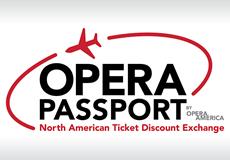Arts Advocacy Updates: Pandemic Relief
President Signs American Rescue Plan Act of 2021; Provides Additional Funding for Paycheck Protection Program and Extends Eligibility; Provides Additional Funding for SVOG Program
The president signed the $1.9 trillion American Rescue Plan Act of 2021 on March 11. This chart summarizes many of the law’s major provisions. Please note that relevant federal agencies, including the U.S. Small Business Administration and the U.S. Internal Revenue Service, will issue new guidance and update existing guidance to implement the law’s provisions for various federal relief programs, including the Paycheck Protection Program (PPP) and the Shuttered Venue Operators Grant (SVOG) program. The law provides for the following, among other things:
- Provides $130 million in emergency funding for the National Endowment for the Arts; $130 million in emergency funding for the National Endowment for the Humanities; $200 million in emergency funding for the Institute for Museum and Library Services; and $175 million in emergency funding for the Corporation for Public Broadcasting;
- Provides an additional $1.25 billion for the SVOG program and allows eligible entities to apply for PPP first and then the SVOG program once it is operational in early April;
- Provides an additional $7.25 billion for PPP and extends eligibility for the “second draw” program to eligible entities with 500 employees or less;
- Extends the Employee Retention Tax Credit until the end of 2021; and
- Provides $350 billion for states and local governments and allows governors to provide grants to the hardest-hit businesses and nonprofit organizations in the hardest-hit industries.
U.S. Small Business Administration Issues Updated Guidance for PPP and SVOG Programs; SVOG Program to Start in Early-April
The U.S. Small Business Administration (SBA) continues to update its guidance on the SVOG program as the federal agency prepares to start the program in early April. The SBA updated its FAQ document (effective March 12), which makes further clarifications concerning the program based on the passage of the American Rescue Plan Act of 2021. The SBA makes the following clarifications, among others:
- Eligibility Section
- Dual Application (page 2, question 5): Confirms eligible entities can apply to PPP first (on or after December 27, 2020) and then SVOG once operational in early April.
- Dual Application (page 4, question 21. and page 5, question 22: Explains how the SBA will reduce SVOG maximum awards from PPP loan proceeds.
- Application Section
- Application Preparation (page 12, question 1): Further explains how eligible entities can prepare to apply for the SVOG program.
- Start of the Program (page 12, question 3): Confirms that the SVOG program will start in early April.
- Program Funding (page 12, question 5): Further explains how the SBA will expend funds during the initial and supplemental award phases.
- Audited Financial Statements (page 14, question 17): Clarifies that audited financial statements are not required to apply for an SVOG award.
- Use of Funds Section
- Time Period to Expend Grant Awards (page 17, question 16): Further clarifies that grantees have one year from the date of the initial award to expend funds and only on allowable expenses incurred between March 1, 2020, and December 31, 2021. Further clarifies the time period to expend funds from supplemental awards.
- Using SVOG Grants for SBA-Backed Loans: Allows grantees to expend grant awards to make payments on SBA-backed loans.
- Revenue Section
- Donations/Contributions (page 19, question 3): Further confirms that donations, charitable contributions, etc., are not considered “gross earned revenue.” This is applicable for the third priority/reserve fund, following the first two priority periods, where eligible entities will have to demonstrate a 25% or greater earned revenue loss between one quarter in 2020 compared to the same quarter in 2019.
- Calculating Award Amounts (page 20, question 13): Further clarifies that the SBA will permit applicants to use EITHER FY2019 or calendar 2019 earned revenues as the basis for determining their award amounts for BOTH initial and supplemental award phases.
- Sponsorships as “Earned Revenue” or “Gross Revenue”: Further clarifies that the determination of sponsorships will depend on whether the eligible entity is for-profit or nonprofit.
Again, the SVOG program is scheduled to be operational in early April, and eligible entities can apply for both the Paycheck Protection Program and the SVOG program. Eligible entities should be securing their DUNS number and SAM registration (page 12, question 1). The FAQ document provides information on how eligible entities can calculate their employee counts on page 17, question 1.
OPERA America continues to work with the SBA on its interpretation of the term “gross revenues” for the first 2 priority periods with the SVOG program. Currently, the SBA is interpreting “gross revenues” as “gross receipts” (FAQ document, page 19, question 2). OPERA America is seeking to strip restricted contributed capital funds, restricted grants, or unrealized gains from investments from the “gross revenues” interpretation.
The PPP application deadline is March 31, 2021. Please note that participating financial institutions should be accepting applications until COB on March 31. The American Rescue Plan Act of 2021 provides an additional $7.25 billion for PPP and an additional $1.25 billion for SVOG.
The SBA also updated its FAQ document for PPP (effective March 12). Reminder: The American Rescue Plan Act of 2021 allows eligible entities with 500 or fewer employees to apply in a manner similar to the “first draw” loan program, but the “second draw” loan is still capped at $2 million.
NEA Issues Statement on American Rescue Plan Act of 2021; Solicits Feedback on Next Strategic Plan
The recently signed $1.9 trillion American Rescue Plan Act of 2021 provides $135 million in emergency funding for the National Endowment for the Arts (NEA). The NEA issued a press release concerning the new law and indicates that the federal agency is “moving quickly to develop guidelines and application materials for the competitive funding process.” It is important to note that 40 percent of the emergency funding is going to state/regional arts agencies and 60 percent will be distributed as direct grants to grantees.
The NEA is also soliciting feedback concerning its next strategic plan for fiscal years 2022–2026. The deadline for feedback is March 31, 2021. The federal agency welcomes feedback on its strategic framework, including its mission, vision, and strategic goals and objectives, as well specific feedback concerning the NEA’s work on any number of issues that impact the arts community, including:
- The post-pandemic recovery of the arts sector;
- Changes in work and leisure patterns;
- The rise of virtual engagement in the arts;
- Growing integration of the arts with other sectors (e.g., health, science, education, technology, community development); and
- Greater public attention to issues of diversity, equity, inclusion, accessibility, and social justice.
The NEA will solicit additional feedback once the strategic plan is drafted this summer. Feedback can be sent to NEAstrategicplanninggroup@arts.gov, and comments will be accepted through March 31, 2021.

Tony Shivers
Tony Shivers is OPERA America’s director of government affairs.



